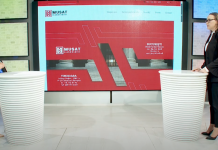Authors: Valentina Pârvu, Senior Associate & Anca Ion, Associate
On 8 July 2020, a draft law on remote medical services through means of electronic communication was submitted for debate to the Romanian Senate.
Until now, the regulation of telemedicine had applied to the emergency and alert periods surrounding the COVID-19 pandemic.
Telemedicine in Romania was originally designed as a way to consult, diagnose, treat and monitor patients in isolated places, away from local medical units, or in areas where there is a shortage of available medical staff.
Telemedicine became mandatory earlier this year in order to prevent the spread of COVID-19. Specifically, the Romanian government issued regulations that allowed for the remote provision of medical services during the declared state of emergency (see Government Decision no. 252/2020).
The measures were extended during the declared state of alert (see Government Emergency Ordinance no. 70/2020).
When adopted, the draft law will serve as a general legal framework for the practice of telemedicine, applicable beyond any state of emergency or alert and to anyone in Romania who seeks remote medical services.
The main provisions in the draft law include:
- A list of the medical services that can be provided through telemedicine, which includes:
-
- establishing a diagnosis;
- in case of a patient at risk, ensuring monitoring with the purpose of prevention or providing post-therapeutic monitoring;
- interpreting the results of certain medical investigations;
- requesting another specialised opinion;
- preparing a therapeutic decision;
- issuing medical prescriptions; and
- monitoring the health of patients.
- Doctors can grant remote medical consultations provided for basic services and for services in the minimum package of medical services via any means of electronic communication. (Note that the previous regulation GD 252/2020 only permitted a maximum of eight consultations per hour. The draft law does not include this limitation).
- The remote means of communication will be agreed upon by the doctor and the patient. The doctor must ensure the protection of a patient’s personal data and inform him about limitations of remote consultation and the potential need to call the medical office or the emergency number 112 if his symptoms change or worsen.
- A teleconsultation may be booked in the same way as a traditional consultation. The physician must record a report on each patient, which must include the minimum-required content.
- Following a teleconsultation, a patient can receive the necessary documents, such as an electronic or hard-copy medical prescription, a referral for medical or hospital care, a referral for further investigation, a medical-leave certificate or a home-care recommendation. (Note that ‘special-regime’ medical prescriptions cannot be transmitted electronically).
- The documents may be sent through electronic means of communication directly to the patient or to a designated person.
- The electronic medical prescription must be validated in the Electronic Prescription System (SIPE) and does not need a doctor’s handwritten signature, label or medical-office stamp.
- Remote consultations will be granted and settled according to the legal regulations in force for medical-office consultations as provided in the service packages.
Currently, the draft law is under review and seeking approval from various consultative bodies of parliament. The Romanian government is also expected to issue its opinion on the bill. When the draft legislation goes into force, the Ministry of Health has 90 days to specify how the measures will be implemented and put into practice.
CMS is monitoring the status of the draft law and will provide updates on its progress.














